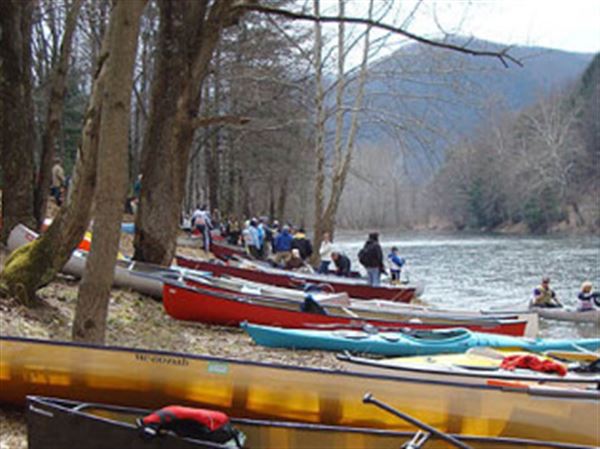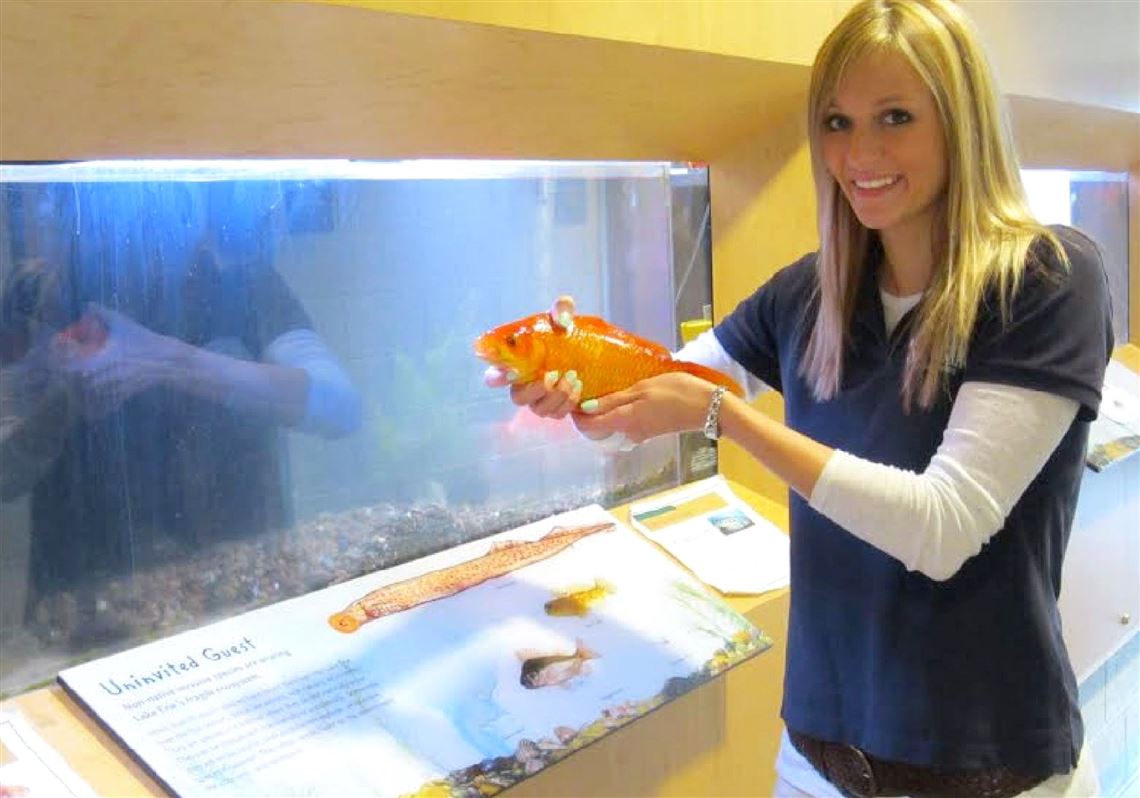Plant and animal ranges have expanded and contracted for as long as there has been life on Earth. But one unusually adaptive species is exceptionally good at radically altering the ranges of multiple species.
Improvements in transportation, beginning with bipedal walking, have enabled humans to travel everywhere on the planet. Sometimes, intentionally or not, people carry things with them that have no ecological counter-balances in the new locations. Sometimes the result is rapid change that local environments cannot absorb.
At an April 22 meeting of the Pittsburgh Downriggers Club, Sara Stahlman, senior coastal outreach specialist at Pennsylvania Sea Grant, intends to remind anglers that their boats and trailers provide the fastest way to transport undesired species among the state's waterways.
"I think a lot of fishermen already generally know that," she said, "but they might not be aware that they may be personally contributing to it, or know how to prevent spreading these things around."
Scientists at the U.S. Fish and Wildlife Service, the state Fish and Boat Commission and other organizations report that the greatest threat to Pennsylvania waterways isn't necessarily industrial or biological pollution -- it's the spread of invasive and non-native species.
Sometimes the introduction is unintentional, like when zebra mussels were pumped from the bilges of sea-faring ships into the Great Lakes. The fingernail-size clams decrease food supplies for native species and cluster at water intake pipes, clogging and damaging equipment at power and water facilities. The zebra mussel and its cousin, the quagga mussel, have been collected in 21 Pennsylvania waterways with an economic impact in the billions of dollars.
Other times the introduction is an intentional act of ignorance, like when anglers emptied minnow buckets into Conneaut Lake, Lake Wilhem and other Pennsylvania waters. The gizzard shad that anglers poured into those waters out-competed native fish for resources and grew in population to dominate the lakes, providing so much food for game fish that the quality of fishing in those waters suffered.
Quick and easy ways to stop your boat and trailer from spreading unwanted species.
1. Look. A visual inspection, remove weeds and mud.
2. Drain. Empty bilges and live wells, and dump bait buckets in the trash or on the ground before leaving the lake.
3. Clean. Use hot soapy water, diluted bleach or salt water to clean your boat and trailer, or drive them through an automatic car wash.
4. Dry. If possible, dry your boat and trailer for at least five days before launching in another lake or river. In didymo areas, keep it dry for at least 48 hours before relaunching.
"Here's how bad it is. In the Great Lakes right now there are 160 invasive species that we know about," said Stahlman. "In Pennsylvania we have 180 non-native species -- one new unwanted species coming in every six to eight months. That really ups the chances of getting a new species that could cause severe ecological impacts."
Most anglers are aware of the threats to fishing posed by unwanted species such as didymo algae, various Asian carp and the northern snakehead. But some non-native species are so common and prolific anglers may think they belong here. You've probably fished over Eurasian water milfoil, curly leaf pond weed, alewifes and common carp -- possibly in the same waters. None of them belong there; all impact native species.
The economic value of Pennsylvania's commercial and recreational fishery is more than $3.5 billion dollars -- it's clearly in the interest of state government to try to curb the spread of unwanted aquatic hitchhikers. But the most likely ports of entry for those species -- boat launches and marinas controlled by the Department of Conservation and Natural Resources and state Fish and Boat Commission -- remain mostly unguarded. Signs are posted about cleaning boats, but few of the pull-overs at park launches are equipped with water hoses. Stahlman says a good squirting is perhaps the easiest way for boaters to prevent the spread of unwanted species.
"The knowledge is out there, but it isn't in the culture yet," she said. "Cleaning their hulls and trailers isn't something they routinely do without thinking about it."
In an effort to help anglers remember to act in their best ecological interest, Pennsylvania Sea Grant has launched a campaign to get tournament anglers to make hull and trailer cleaning a routine part of their events.
Last year, group members attended the Pymatuning Crappie Tournament and Great Lakes Largemouth Bass Series at Presque Isle State Park. Stahlman said they were there "to kind of watch and see if people were taking precautions, did they have invasive species on their radar."
They didn't, Stahlman said tournament anglers coming off the lake were perhaps understandably focused on the weigh-in.
This year, Pennsylvania Sea Grant members participated in the rule-making meetings of several tournaments, introducing language that would enable trained volunteers to wash hulls and trailers while anglers are weighing their fish.
Among the first Pennsylvania fishing tournaments with the new boat-washing service will be the Master Walleye Circuit tournament at Kinzua Dam on the Allegheny River, July 11-13.
Pittsburgh Downriggers Club meets at 7:30 p.m. April 22 at Corapolis Sportsman Club, 106 Coketown Rd., Corapolis. 412-231-8150.
First Published: April 20, 2014, 4:00 a.m.















